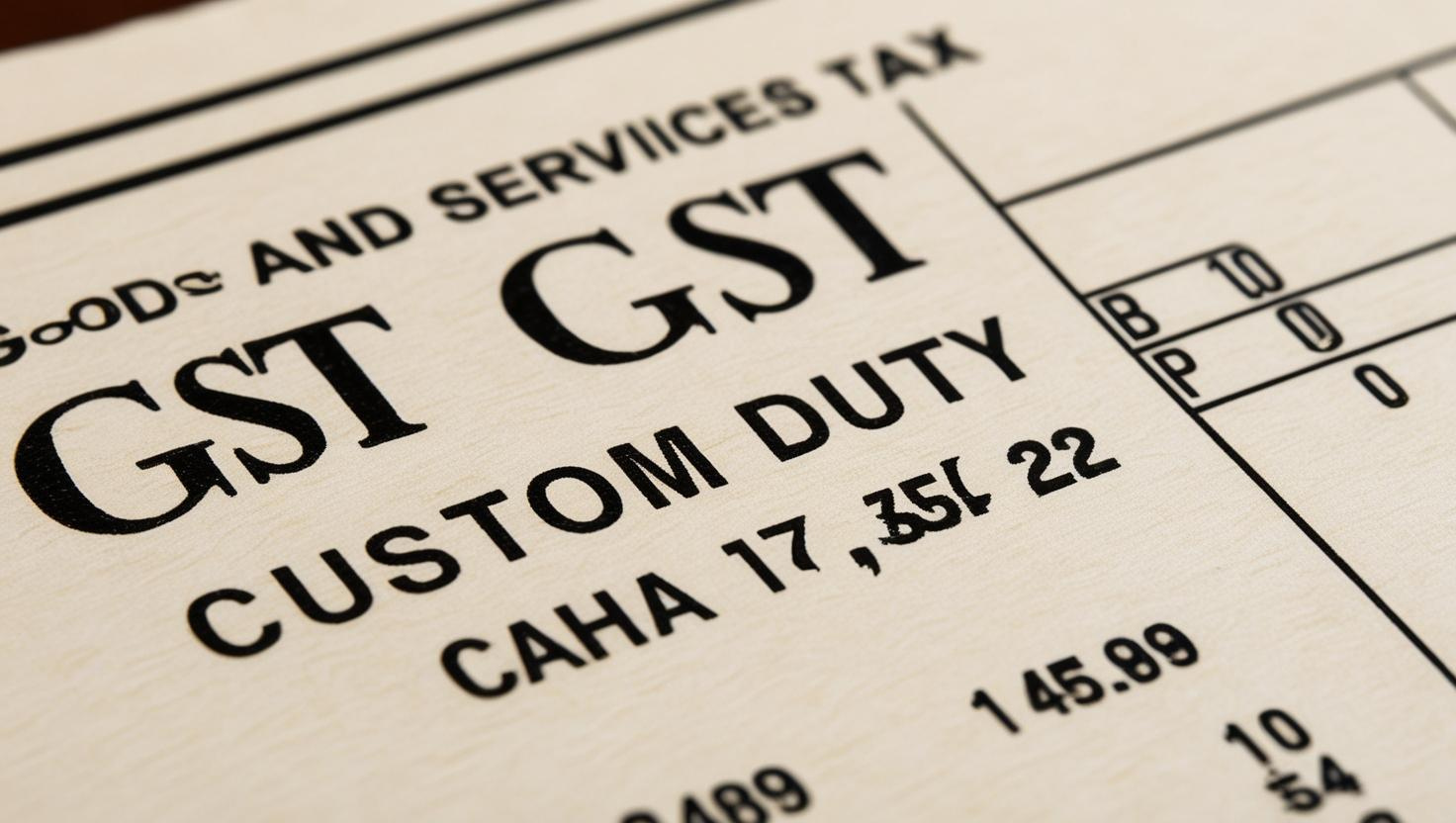GST and customs duty are two integral components of India’s tax system that impact businesses engaged in international trade. Understanding how these taxes interact and calculating them accurately is crucial for compliance and cost management.

Customs Duty on Imports
When goods are imported into India, they are subject to customs duty. This duty is levied by the Central Government under the Customs Act, 1962. The applicable duty rates depend on the product classification as per the Harmonized System of Nomenclature (HSN) and the Customs Tariff Act.
Here are some key points to note about customs duty on imports:
- Basic Customs Duty (BCD) is levied as a percentage of the assessable value, which includes the transaction value, freight, insurance, and other charges up to the port of importation.
- The standard rate of BCD is 10%, but it can vary for different products.
- In addition to BCD, imports may also attract other duties and cesses such as:
- Social Welfare Surcharge (10% of BCD)
- IGST on custom duty (levied on the total of assessable value plus BCD plus Social Welfare Surcharge)
- Compensation Cess (applicable on certain products)
Revised Customs Duty Rates
1. Impact on the Electronics Industry
- Customs duty on imported parts for mobile phone chargers increased from 10% to 20% to encourage domestic production.
- Duty on printed circuit board assembly (PCBA) for mobile phones reduced from 10% to 5% to promote local manufacturing.
2. Changes for Essential Goods
- Basic customs duty exempted on imports of certain medical supplies and equipment to combat the COVID-19 pandemic.
- Duty on the import of raw cotton was reduced from 10% to 5% to support the textile industry.
3. Updates for the Medical Sector
- Customs duty exempted on imports of life-saving drugs and medicines, subject to certain conditions.
- Concessional rate of 5% BCD was extended on certain medical devices to encourage domestic manufacturing.
GST on Imports and Exports
1. GST on Imports
Taxation on Imported Goods
- GST on imported goods is levied in the form of Integrated GST (IGST).
- IGST is calculated on the value of imported goods plus any customs duty (BCD + Social Welfare Surcharge).
- The standard rate of IGST is 18%, but it can vary based on the GST rates applicable to different products.
GST Rules for Imported Services
- Import of services is treated as inter-state supply and subject to IGST
- The importer is required to pay IGST under the reverse charge mechanism
- Imported services used for personal consumption are not eligible for input tax credit
2. GST on Exports
- Exports are considered as zero-rated supplies under GST
- Exporters can choose to export goods or services under Bond/LUT (Letter of Undertaking) without paying IGST
- Alternatively, exporters can pay IGST on exports and claim a refund later
- Input tax credit can be claimed on inputs used for making export supplies
FAQs
Q1. Are imported goods subject to both GST and Customs Duty?
Yes, imported goods attract both IGST (Integrated GST) and customs duties like Basic Customs Duty (BCD).
Q2. How are GST refunds processed on imports?
Importers can claim a refund of IGST paid on imports by filing a refund application in Form GST RFD-01A. The refund is credited to the importer’s bank account.
Q3. What documents are required to pay GST and customs duty on imports?
To pay GST and customs duty on imports, the following documents are required:
- Bill of Entry
- Invoice
- Packing List
- Bill of Lading/Airway Bill
- Certificate of Origin (if applicable)
- Other product-specific certificates or permits
Q4. Are there exemptions available for customs duty and GST on certain imports?
Yes, exemptions or concessions may be available for certain goods under trade agreements, export promotion schemes, or special notifications issued by the government.
Q5. What is the difference between GST and Customs Duty?
GST is a comprehensive indirect tax levied on the supply of goods and services, while customs duty is a tax imposed on the import of goods into India. Customs duty is levied by the Central Government, whereas GST is administered by both the Central and State Governments.
